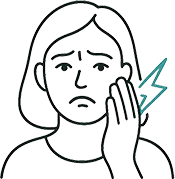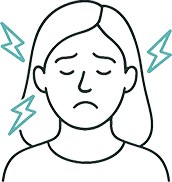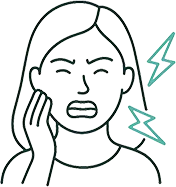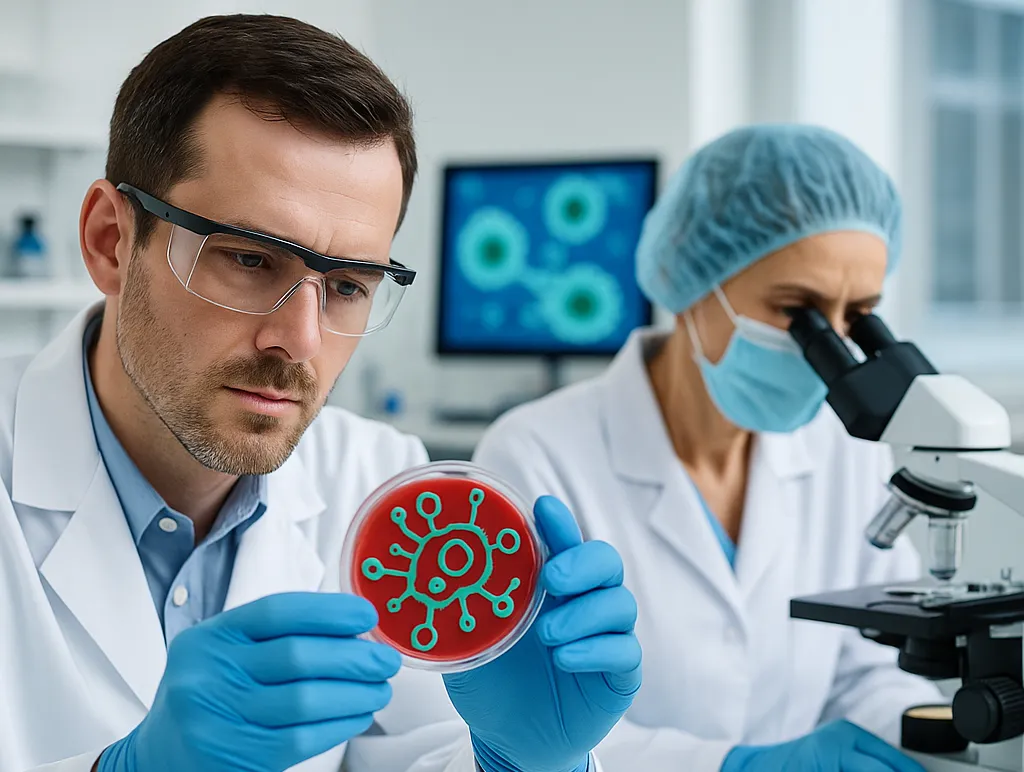
Trigeminal Neuralgia
Step into a new era of healing at Infinity Stem Cells, where cutting-edge science meets the body’s innate potential. Our advanced cell regeneration therapies, centered on mesenchymal stem cells (MSCs), harness the transformative power of cellular renewal to address a wide range of conditions, restoring vitality and igniting wellness from within.
|
|
|
|
|
|
|
What is Trigeminal Neuralgia
Trigeminal Neuralgia (TN) is a chronic pain condition that affects the trigeminal nerve, which carries sensation from the face to the brain. It causes sudden, intense facial pain, often described as electric shocks or stabbing sensations. Even mild stimulation—like brushing your teeth or a light breeze—can trigger extreme discomfort.
TN is usually caused by nerve compression, often from a blood vessel pressing against the trigeminal nerve. It can also result from nerve damage due to multiple sclerosis, injury, or rarely, a tumor.

What Are the Symptoms?
Trigeminal Neuralgia typically affects one side of the face and may include:

Sudden, sharp, or shooting pain

Pain episodes that come and go

pain when chewing, talking, brushing teeth
Current Treatments
for Trigeminal Neuralgia
Treatment focuses on reducing pain and preventing flare-ups:
Medications: Anticonvulsants like carbamazepine and gabapentin are commonly used. Muscle relaxants or antidepressants may also help.
Surgery: Options include microvascular decompression, nerve destruction (rhizotomy), or targeted radiation (Gamma Knife).
Lifestyle Support: Managing stress, avoiding triggers, and seeking counseling or support groups can improve quality of life.
What Are the Outcomes?
Trigeminal Neuralgia is not life-threatening, but it can significantly affect quality of life due to its severe pain and unpredictability. Many people respond well to medications or surgery. However, symptoms may recur or become resistant to treatment over time, requiring ongoing management and care.
Stem Cell Therapy for Trigeminal Neuralgia
Stem cell therapy is an emerging and experimental approach for treating nerve-related conditions like Trigeminal Neuralgia. The goal is to use mesenchymal stem cells (MSCs) to:
Reduce inflammation around the trigeminal nerve
Repair or regenerate damaged nerve tissue
Provide long-term pain relief without invasive procedures
Though still in the research phase, early studies suggest stem cells may offer an alternative for patients with treatment-resistant TN. It is not yet an approved therapy, but clinical trials are ongoing and may be considered in select cases.
Science, Simplified: Our Therapy Process
It’s important to note that stem cell therapy for autism is still experimental, and not approved as a standard treatment. Families should consult healthcare professionals and thoroughly research clinical trial options.
Site
Target
Depth
Forehead & Eyes
Cheeks & Jawline
Under-Eye Area
Full Face
Wrinkles, crow’s feet
Volume loss, elasticity, hydration
Dark circles, fine lines
Texture, glow (via microneedling)
1–2 mm (superficial dermis)
2–4 mm (deep dermis)
1–1.5 mm (cautious use)
0.5–1.5 mm

Why Consider
Stem Cell Therapy?
Non-surgical and outpatient
Focuses on long-term healing, not just symptom relief
Supported by early-stage clinical research
Ethically sourced, high-quality regenerative cells
Find Out If You're a Candidate >>
Talk to an Expert >>
Explore the Science Behind It >>
Frequently Asked Questions
Is this FDA-approved?
Stem cell therapies using ethically sourced regenerative cells are regulated under strict guidelines by the FDA. While certain applications have explicit FDA approval, others are administered under FDA guidelines as investigational therapies, complying fully with regulatory standards to ensure safety and quality.
What are the risks or side effects?
Stem cell therapy is generally safe with minimal risk. Common mild side effects can include temporary soreness, swelling, or minor bruising at the injection site. Rarely, more serious complications such as infections or allergic reactions can occur. Our medical team thoroughly evaluates each patient to minimize these risks.
How long until I feel results?
Patients often notice initial improvements within days to weeks, with more substantial benefits progressively occurring over the following months as the regenerative process continues. Individual experiences can vary depending on the condition's severity and personal health factors.
How many sessions are required?
Many patients experience significant improvements after a single session. However, depending on individual conditions and response to treatment, additional sessions may be recommended to maximize outcomes. Our specialists provide personalized recommendations during your consultation.
Is this covered by insurance?
Insurance coverage varies depending on the specific policy and condition being treated. While regenerative therapies are not universally covered, some plans offer partial or full coverage. Our administrative team will assist you in verifying insurance coverage and exploring financial options to support your treatment.
Connect with Us
Quick Links
Copyright© 2025 Scientific Infinity - All Rights Reserved.
